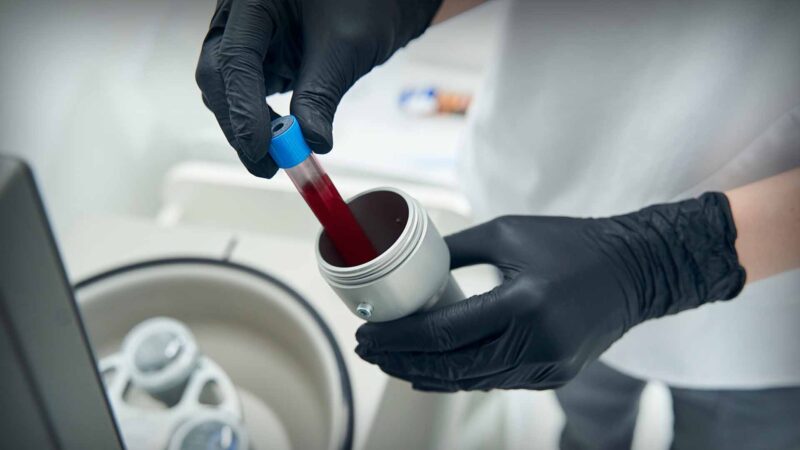5 YEARS IN THE MAKING, TARGETED NATIONAL LUNG CANCER SCREENING PROGRAM COMMENCES IN 2025 Lung Foundation Australia CEO talks about opportunity to treat patients presenting at early stage instead of late stage
Australian Health Journal SEGMENT
Filmed in Adelaide | February 2025
INTERVIEWED
Mark Brooke, Chief Executive Officer
Lung Foundation Australia
In February 2025, Australian Health Journal spoke with Mark Brooke, Chief Executive Officer of Lung Foundation Australia, at the 10th Australian Lung Cancer Conference in Adelaide, on the upcoming commencement of the National Lung Cancer Screening Program (NLCSP)
The conference theme, Evolution and Revolution in Lung Cancer, was chosen in recognition of the historic significance of 2025. Mr Brooke emphasised the importance of the National Lung Cancer Screening Program, which is set to begin on July 1st.
The Australian Government’s $267 million investment in the National Lung Cancer Screening Program aims to vastly improve lung cancer detection, treatment, and survivorship. When launched it will be Australia’s first new screening program in over 20 years.
Following a request from the Australian Government, Cancer Australia undertook an enquiry into lung cancer screening, publishing a report that informed the development of the NLCSP.
As the health peak advisory body to the Department of Health and Aged Care, the Lung Foundation aims to amplify the lived experiences of patients within this program. After nearly five years of preparation, the initiative is a crucial step in moving lung cancer diagnoses from late stages (three and four) to early stages (one and two), significantly improving patient care.
Mr Brooke expressed optimism that the timing for this screening program is ideal for Australia, given that lung cancer is the nation’s leading cancer killer. The program’s implementation is particularly challenging because it integrates with General Practice, requiring collaboration from healthcare professionals. While acknowledging potential hurdles, Mr Brooke is confident that the organisation and preparation for the program are well on track.
The program specifically addresses the needs of priority populations, including Aboriginal and Torres Strait Islander communities, who are disproportionately affected by lung cancer. Efforts have been made to provide culturally safe experiences and mobile CT services through partnerships with organisations like Heart of Australia, ensuring access for rural and remote populations.
Over the past five years, the Lung Foundation has collaborated with state governments to support the role of specialist lung cancer nurses. This initiative has proven to enhance timely care and improve patient pathways, ultimately striving for better outcomes in lung cancer treatment.
You Might also like
-
Allied Health Exercise physiology Middle-aged New Content People in healthcare Seniors and Aged Care
Metabolic health expert talks about healthy ageing
David Beard is a highly experienced Exercise Physiologist with a specialisation in metabolic health and healthy aging. He has spent over 40 years in this profession, even before exercise physiology was formally recognised as a discipline. His extensive background includes over a decade of working in aged care and a strong focus on adult health and fitness. David has authored a book on healthy aging and dedicated the last 10 to 12 years to advancing his expertise in metabolic health issues such as diabetes, weight loss, and inflammatory conditions. He is a co-owner of HFRC in Nedlands, Western Australia, where he has worked for nearly a decade.
-
Improving access to osteopathic services and integrated care models
The Chief Executive Officer of Osteopathy Australia, Antony Nicholas spoke with Australian Health Journal about:
– Involvement in the Strengthening Medicare Task Force
– The unique skills osteopaths have that can address the chronic disease burden
– Current workforce issues around osteopaths and if enough are coming through via student placements
– How uploading data to My Health Record by osteopaths could assist team-based care of patients
– How the value of osteopaths in Residential Aged Care Facilities (RACFs) could be better understood and better access for residents
– The recommendations around aged care access to allied health services, including osteopathy
– The recommendations around consumer access to osteopaths and GP referrals
– Other osteopathy recommendations in the upcoming Federal BudgetIn the lead up to the Australian Federal Budget in May 2023, Australian Health Journal reached out to peak health industry bodies to hear about their priorities, either noted in pre-budget submissions lodged with Federal Government in January 2023 or in recent forums such as the Strengthening Medicare Taskforce.
-
Pathology technology at a crossroads
The CEO of Pathology Technology Australia, Dean Whiting spoke with Australian Health Journal about the following:
– Pathology Technology Australia’s key priorities in the coming years
– Current local capability in pathology technology compared to other countries
– How the health system supports change and adoption of pathology technology
– How pathology is perceived by the public and in government as well as how developments in pathology technology are followed and understood
– Observations in the Strengthening Medicare Taskforce ReportIn the lead up to the Australian Federal Budget in May 2023, Australian Health Journal reached out to peak health industry bodies to hear about their priorities, either noted in pre-budget submissions lodged with Federal Government in January 2023 or in recent forums such as the Strengthening Medicare Taskforce.



